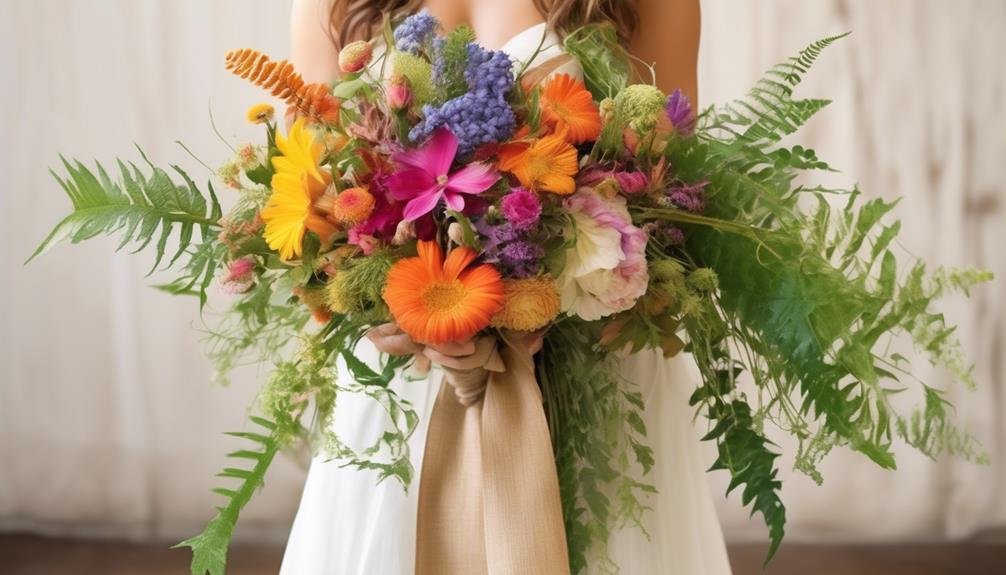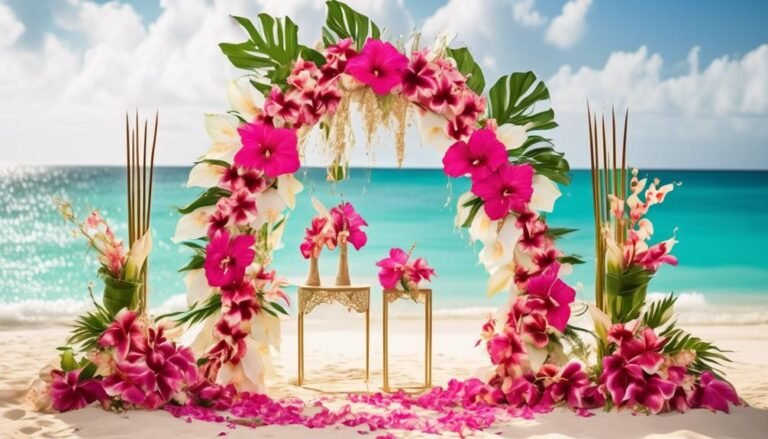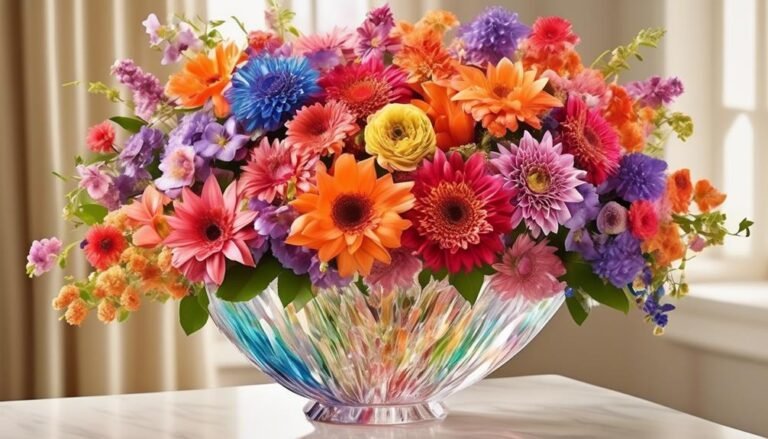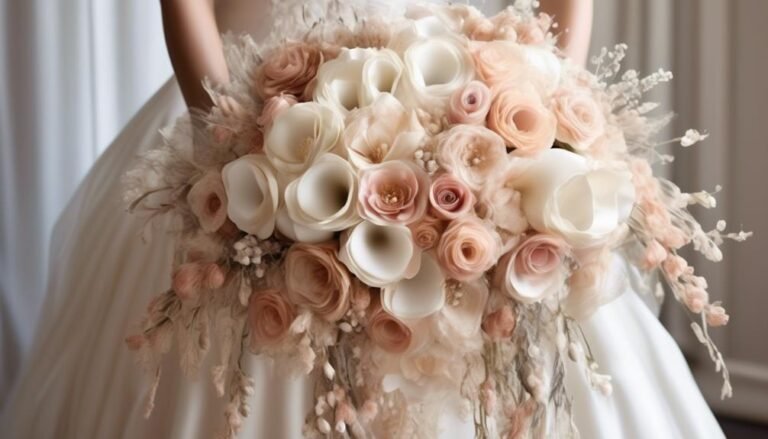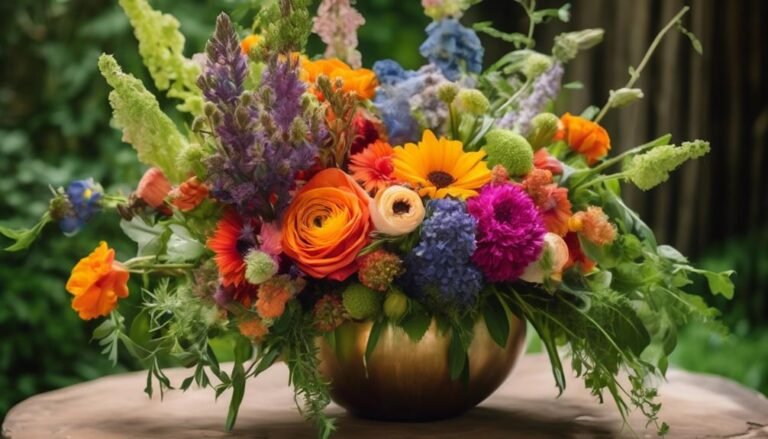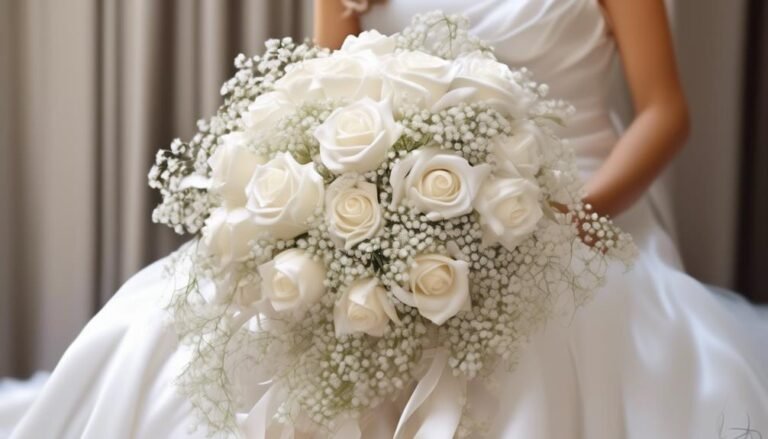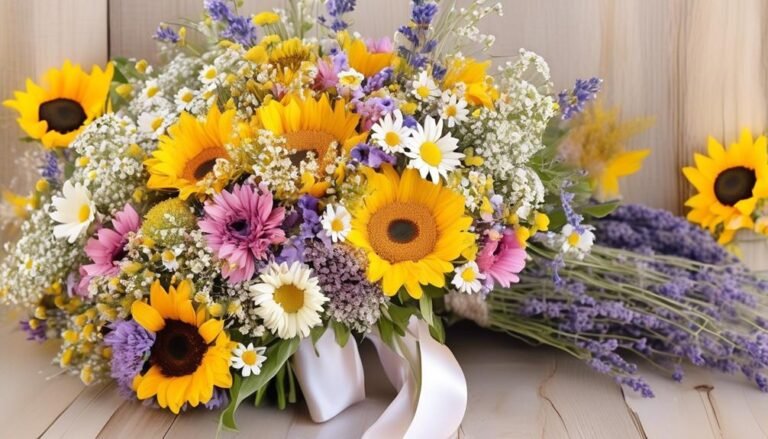Go Green on Your Wedding Day: Eco-Friendly Bouquet Guide
Planning a sustainable wedding involves making conscious choices, and one area where you can go green is with your bouquet. Here are some tips to help you create an eco-friendly bouquet without compromising on style and beauty:
- Choose locally grown flowers: Opt for blooms that are locally sourced and in season. This not only reduces the carbon footprint associated with long-distance transportation but also supports local farmers and businesses.
- Avoid chemical pesticides and fertilizers: Look for organic or sustainably grown flowers that have been cultivated without the use of harmful chemicals. This helps to protect the environment and the health of the workers involved in the flower industry.
- Incorporate reusable elements: Instead of using traditional floral foam, which is not biodegradable, consider using alternatives such as chicken wire or floral frogs to hold your bouquet together. These can be reused for future arrangements or recycled responsibly.
- Opt for dried or preserved flowers: Dried or preserved flowers are a great option for eco-friendly bouquets, as they require no water or energy-intensive refrigeration. They also last longer, allowing you to enjoy your bouquet even after your special day.
- Donate or compost your bouquet after the wedding: Instead of letting your bouquet go to waste, consider donating it to a local nursing home or hospital. Alternatively, you can compost the flowers, returning nutrients back to the earth.
By following these eco-friendly practices, you can create a beautiful and sustainable bouquet that not only adds a touch of natural beauty to your wedding day but also leaves a positive impact on the environment. So go green and make a difference on your special day!
Sustainable Flower Options for Eco-Conscious Couples
Planning a sustainable wedding involves making conscious choices, and one area where eco-conscious couples can make a difference is in their flower arrangements. Here are some sustainable flower options to consider:
- Choose local flowers: By selecting flowers from local growers in the Pacific Northwest, you can avoid the environmental impact of imported flowers and potential pesticide use. Supporting local businesses also helps the community thrive.
- Opt for organic flowers: Choosing organic flowers minimizes chemical exposure and supports local businesses that prioritize sustainable farming practices. Look for certified organic options to ensure you're making an eco-friendly choice.
- Be flexible with seasonal availability: It's important to be flexible with your flower choices based on what's in season. By sticking with flowers that are currently available, you reduce the environmental impact of long-distance transportation and support local flower growers.
- Consider alternatives in winter: In winter months, when local options may be limited, consider flowers from closer regions like California or Canada. This helps reduce the carbon footprint associated with long-distance transportation.
- Incorporate re-plantable botanicals: Adding re-plantable succulents to your bouquets, boutonnieres, and centerpieces is a sustainable option. After the wedding, you can remove wires from the succulents and re-plant them in gardens or pots, reducing waste.
- Avoid floral foam: Floral foam isn't environmentally friendly and can be harmful to aquatic life. Opt for hand-tied bridal bouquets and request eco-friendly designs and centerpieces that don't require foam. Experienced florists can create impressive displays without the need for foam.
Choosing Locally Grown Wedding Blooms
Supporting local businesses and reducing your environmental impact are important considerations when planning a sustainable wedding. When it comes to your flower arrangements, choosing locally grown blooms can make a positive difference. Here's why:
- Supporting the local economy: By opting for locally-grown flowers, you're not only getting beautiful blooms but also supporting your community. Choosing local flower growers helps small businesses thrive and contributes to the growth of your local economy. Plus, it reduces the need for long-distance transportation, which minimizes the carbon footprint associated with imported flowers.
- Reducing environmental impact: Locally grown flowers have a smaller environmental impact compared to imported ones. With fewer transportation emissions and lower energy consumption, you can feel good about the eco-friendly choices you're making for your wedding. Additionally, local flowers are less likely to be sprayed with harmful pesticides and fungicides, promoting a healthier environment for you and your loved ones.
- Embracing seasonal and organic options: Opting for locally grown flowers allows you to embrace the beauty of seasonal blooms. These flowers naturally thrive during specific times of the year, ensuring that your arrangements are in harmony with nature. Moreover, many local growers prioritize organic practices, meaning your blooms are grown without synthetic fertilizers or chemicals, making them even more eco-friendly.
Eco-Friendly Bouquet Alternatives

When it comes to wedding bouquets, there are plenty of eco-friendly alternatives to traditional fresh flower arrangements. These options not only add a unique touch to your wedding, but they also have a positive impact on the environment.
Here are three eco-friendly bouquet alternatives to consider:
- Dried Flowers: Dried flowers are a great choice for eco-conscious couples. Unlike fresh flowers, dried flowers require less water, pesticides, and energy during the growing process. They also last longer and are low-maintenance. You can find a variety of dried flower options at local flower shops or online.
- Succulents: If you're looking for a sustainable option that can be reused after the wedding, consider using succulents. These plants are re-plantable and can be easily incorporated into gardens or pots. Nurseries and garden centers are great places to find a variety of succulents to create your unique bouquet.
- Fabric Bouquets: For a long-lasting and customizable option, fabric bouquets are a great choice. These bouquets can be passed down as heirlooms and reused for other special occasions. You can find a wide range of fabric bouquets on websites like Etsy or at wedding accessory stores.
Tips for Reducing Waste in Your Wedding Bouquet
Planning a sustainable and waste-free wedding bouquet isn't only environmentally friendly but can also add an elegant touch to your special day. Here are three tips to help you reduce waste in your wedding bouquet:
- Choose local and organic flowers:
Selecting locally grown flowers can significantly reduce the environmental impact associated with transporting flowers long distances. By opting for organic flowers, you can also minimize exposure to harmful pesticides and fungicides, ensuring a healthier choice for both you and the environment.
- Select seasonal flowers:
Choosing flowers that are currently in season not only supports local flower growers but also reduces the environmental impact of importing flowers from other countries. Seasonal flowers are fresher, more vibrant, and often more affordable, adding a natural touch to your bouquet while reducing waste.
- Avoid floral foam:
Traditional floral foam isn't biodegradable and can have a negative impact on the environment. Instead, consider opting for hand-tied bridal bouquets that can be secured using reusable materials such as ribbons or twine. When requesting centerpieces, choose designs that don't require foam, ensuring an eco-friendly approach while keeping your flowers in place.
Incorporating Reusable Elements in Your Bouquet Design
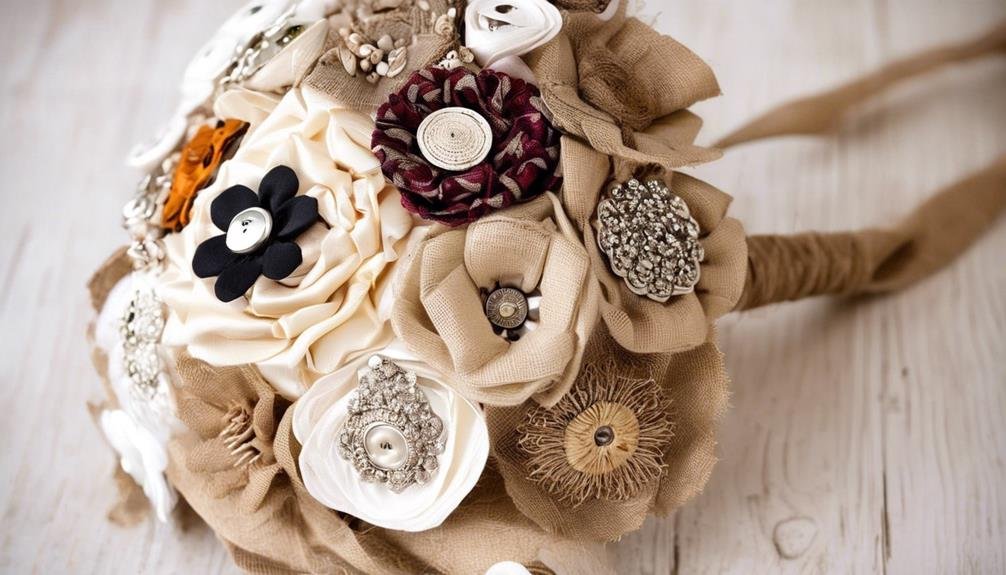
Incorporating reusable elements into your bouquet design is a great way to add a sustainable and eco-friendly touch to your wedding day. By making a few simple choices, you can reduce waste and make a positive impact on the environment.
- Choose local and organic flowers: Opt for flowers that are grown locally and organically. This not only reduces the environmental impact of transportation but also supports local flower growers. By selecting seasonal flowers, you can avoid buying imported ones and further support local growers.
- Consider re-plantable botanicals: Instead of using traditional cut flowers, incorporate re-plantable botanicals like succulents into your bouquet. These can be re-planted after the wedding, reducing waste and allowing the flowers to continue to thrive.
- Say no to floral foam: Floral foam is harmful to the environment and takes a long time to break down. Instead of using it, opt for hand-tied bridal bouquets or eco-friendly design options. This not only eliminates the use of floral foam but also creates a more natural and organic look for your bouquet.
- Choose recyclable containers: When it comes to containers for your bouquet, opt for recyclable options like glass vases. These can be easily recycled after the wedding, reducing waste and minimizing the environmental impact.
- Consider renting vases: Another option is to rent vases instead of buying new ones. This not only saves money but also promotes reuse and reduces waste. Many rental companies offer a wide range of vases in different styles and sizes, allowing you to find the perfect match for your bouquet.
